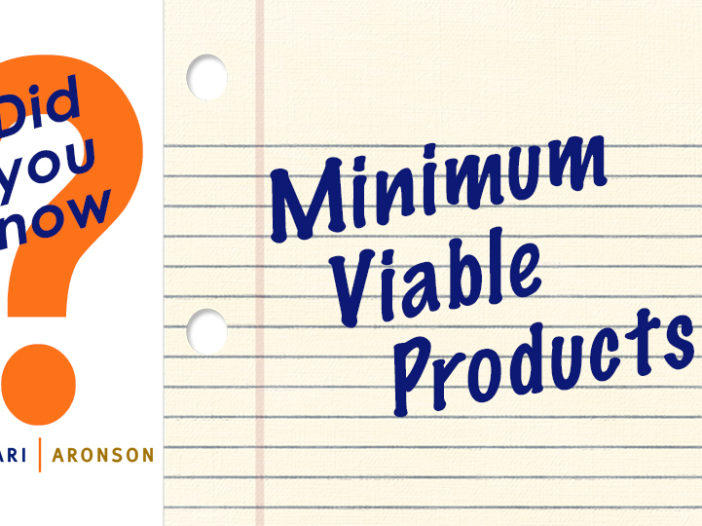
Did you know…
that Lean Startups and Minimum Viable Products (“MVPs”) may be the way startups navigate the pandemic?
by Zachary Fountas
The ongoing pandemic has changed the way most of us work, shop, dine out, and interact with others. For early stage companies hoping to launch, connecting with investors, advisors and potential strategic partners has been challenging. So what’s an early stage company to do to move forward?
Well, maybe a look into the past makes sense. Shortly after the dot com bubble burst, startups around the country ran into an enormous impediment: capital was scarce and investments were lean. Adapting to survive, “Lean Startups” (coined by Steve Blank) pursued MVPs, streamlining product conception to assembly line, scrapping business plans, and pivoted away from what a company “thought” customers needed and focused on what customers said they wanted. Speed was important, since without a product on the market (even one full of bugs), you couldn’t keep the lights on.
Now, more than ever, new companies will need to “show” not just “tell” and more will be returning to the important framework of MVPs. So how are companies going to fund their MVPs? Maybe with one of the following:
- Convertible Notes
- Pros: Traditional instrument. Simple and straightforward. Avoids placing a valuation on the Company, especially important to those without enough operating history.
- Cons: Notes are debt on the Company balance sheet that must be repaid or converted to equity. Notes come with accruing interest. Notes generally convert with a discount or other investor friendly provisions.
- SAFEs
- Pros: Generally a short agreement. Does not require interest, and no requirement that the Company repay the investment or guarantee that the investor receive equity. No deadlines for conversion.
- Cons: As a newer investment vehicle, SAFEs may trigger extensive review and negotiation with sophisticated investors. The more Company friendly terms and limited investor upside may deter some investors.
- Small Business Innovation Research (SBIR) Grants
- Pros: Non-dilutive to capital structure of Company and no transfer of IP rights. If terms are adhered to, the Company does not need to pay back the funds. Winning an SBIR grant can also be seen by post-SBIR investors as a “stamp of approval” that your product is viable and has potential.
- Cons: Application proposals are time consuming and difficult. The timeframe from submission of the application to grant funding can be long. SBIR grants are highly competitive and maintaining reporting and regulatory compliance under the terms can be burdensome on the Company.
Every company’s financing strategy will be different and conferring with legal and accounting advisors is critical. When done right, developing an MVP now could be the key to a successful launch during these challenging times.




